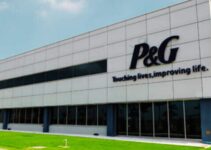PESTLE Analysis of Nestle. Nestle S.A. is a Swiss food & beverage multinational company. Henri Nestle established the brand in 1866 by merging with Anglo-Swiss baby Milk Company. The headquarter of the company is in Vevey, Vaud, Switzerland.
Nestle is one of the world’s largest food & beverage company leaving the competitors like Pepsi, Coca-Cola, Anheuser Busch InBev, and Kraft Heinz. The company is performing well compared to its competitors. The changing lifestyle, habits, and new trends make it difficult for the company to compete in the global market. For instance, there’s a growing trend of less sugar healthy beverages, it has reduced the market and sale of sugar-based drinks.
Today we’ll study pestle analysis of nestle and discuss how various macro-environmental factors impact the growth of the company. For internal factors, checkout swot analysis of Nestle Here are different factors of pestle analysis of nestle;
Political Factors
Changing Government Regulations
As we know that Nestle is a multinational brand and operating its business in more than 190 countries worldwide. Government regulations and the political environment of any country can strongly impact the multinational global brand. That’s why the company has to comply with the local rules and regulations of any country. If the brand doesn’t keep in the mind the local environment of the country, then it would create serious problems.
Impact of Brexit
Non Skilled Workforce
Brexit (Exit of British from EU) is a very good example of a recent political factor impacting the growth of the company. Many foods and beverage businesses lose their skilled EU workers in the UK because of the Brexit deal. It created a gap of a non-skilled workforce and it has become very difficult to hire skilled professionals.
Statistics
- According to the Britain report conducted by the Lloyds Bank Business, 52% of the businesses in the UK had faced difficulty hiring skilled professionals in the last 6 months after Brexit.
- 31% of the businesses are uncertain about the environment because Brexit had evacuated the pool of professionals.
- According to the report conducted by the National Farmers’ union that farmers have faced a 17% reduction in the seasonal EU workers. Consequently, it disturbed the whole supply chain system and distribution network in the UK. It would cause a rise in prices of food and drinks, nonavailability of products on time, and food insecurity.
Impact on Relocation of Production facilities
Nestle has decided to relocate its production facilities of Blue Riband chocolate wafer from York and Newcastle to Poland where the company could easily recruit a skilled workforce. Britain would lose approximately more than 300 jobs as a result.
Increasing Supplying Cost
Many companies like Nestle are facing the issue of increasing the cost of basic supplies and ingredients because of the scarcity of resources. When people go out shopping and buy chocolates, they see it as just another product. They don’t notice that the company is offering less and less chocolate every year.
Economical Factors
Foreign Exchange Rate
Nestle as a global multinational brand has to deal with many exchange rates of different countries. Even a small change in the price of the exchange rate, it would have a huge impact on the revenue of the company. It depends on the region and location of the country because the exchange rate impacts different markets differently.
Growth in the US & Chinese Market
According to an estimate, the growth and profit stream of Nestle in the confectionary business is moving in the upward direction. It increased by approximately more than 40% in 2018. As a result, the profit of the company increased from 7.6 to 10 billion US dollars.
However, according to the official report presented on the Nestles website, the overall growth of the company has increased by approximately 3% by the end of 2020.
Growth in the Comfort Food Sector
According to a study conducted by Mintel Global Food and Drink Trends in 2020, the trend of fast and comfort food is growing and it continues to grow in the next 10 years. It presents a great opportunity for the company to increase its sales in this category.
Social Factors
Public Attitude towards Diet
In recent years, the general interest and lifestyle of the people have shifted towards healthier food. It has made people cautious about their diet and looks. Now, people prefer food and drink with a low concentration of sugar and fats in them.
It presents a great challenge to the company. But Nestle is aware of the challenges of growing trends and lifestyles of people. That’s why the brand is working on the reformulation of cooking preparation processes by decreasing the quantity of salt, sugar, and fats. It would launch a newer and healthier product of Nestle that people want. It’s because of these steps, people still love and buy nestle products.
Price of Water
Most of the products of Nestle involve water, and the company pays for using water in different countries. But the price company pays is very low. This news has attracted the attention of many people and they’ve become concerned about the actions of the company. They say that Nestle is making billions of dollars and pays very little in return. That’s why some of the people have even started boycotting the products of Nestle.
Technological Factors
Digital Industrial Revolution
We’re living in the age of the digital revolution of every day, where things are happening every second of every day. Economists call it the fourth generation industrial revolution, and this revolution presents both opportunities and threats to nestle. Most importantly, this digital revolution is also impacting the behavior and attitude of society as a whole. At the end of the day, it poses a great challenge to companies like nestle.
For instance, the internet of things (IoT) would help the customers to check and verify the quality of food and drinks. Social media marketing and digital marketing are redefining the whole concept of marketing and forcing companies to adopt new methods of communication.
Food and beverage companies like Coca-Cola, Pepsi, Nestle, or Unilever have a great challenge to face. Now they have a choice to make, either to adopt new changes of the digital revolution or perish over time.
Research & Development
Nestle spends a plethora of resources on research and development to find more efficient ways of preparing quality and healthier products to customers. Thanks to technology and digital and social media marketing that made it much easier for nestle to conduct research and development.
Blockchain Technology
Blockchain technology helps companies and businesses to have full control and access from production facilities to the delivery of the products. Although it’s a bit costly project and the initial investment is very high, it would help Nestle to follow newer ways.
Legal Issues
Sugar Tax
As we know the legal and political environment of the country collaborates and they impact the companies and businesses.
For instance, the British government launched a new law in 2016 by the name of “sugar tax.” It means that the companies have to maintain 5g of sugar in every 100ml. If they fail to maintain this level, it would result in more taxation.
Soft drink companies like nestling are under great pressure from such laws and litigation. Now they have to less sugar in their products to maintain their products healthy.
Environmental Issues
Less Carbon Waste
A wave of the eco-friendly environment has impacted every industry across the globe. It means that companies like nestling have to find newer ways to dump less carbon into the environment.
No Plastic Packaging
According to an estimate, Nestle, Dr. Pepper Snapple, Coca-Cola, Pepsi, and Danone recycle approximately 6.6% of the bottles annually. The rest of the billions of bottles end up polluting the ocean and endangering sea life.
On the other hand, Nestle has a better record of recycling. Many NGOs praise and appreciate the company’s steps like zero deforestation, clean supply chain network, and recovery of the climate.
Conclusion: Nestle PESTLE Analysis Example Company
After conducting an in-depth study of the pestle analysis of Nestle, we have concluded that the company has a strong position in the global market in terms of market share and profit. The macro-environmental challenges are real and they can seriously impact the growth of the company. Therefore, Nestle should find a way to work within the boundaries of the macro-environment to keep things going.

Ahsan Ali Shaw is an accomplished Business Writer, Analyst, and Public Speaker. Other than that, he’s a fun loving person.


